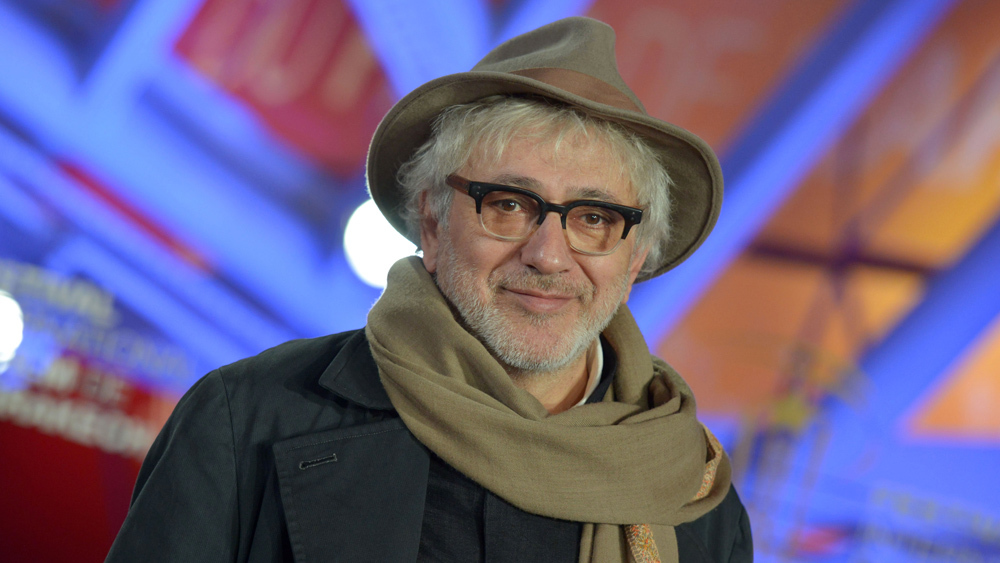There is one admirable thing about Star Wars: The Rise of Skywalker: It tells you exactly what kind of movie it’s going to be right from the jump. The J.J. Abrams-led conclusion to Disney’s modern Star Wars trilogy and the grand finale to the so-called “Skywalker Saga” arrives in theaters this weekend burdened with the creative challenge of following up The Last Jedi and the impossible expectations that come with ending a Star Wars trilogy. In The Rise of Skywalker’s first five minutes, the film lets you know how it intends to go about both of those things: with cowardice.
The film begins with an opening crawl that teases Emperor Palpatine might be alive, and within minutes—I swear, minutes; don’t let anyone tell you what happens in the first few moments of a film are a spoiler—that tease is confirmed: Palpatine is back. He has an army of Star Destroyers he’s ready to give Kylo Ren, if he does something for him first—kill Rey.
From this astonishingly brazen bit of fan-pandering, the film rushes onward and never really stops. We briefly catch up with Rey, Poe, Finn and Co. before they’re sent on an astonishing number of errands that they must run before the big finale. (Depending on how strict your definition is, there are somewhere between three and five Macguffins the gang spends their time chasing around.)
In between checking off boxes on this very cluttered shopping list, The Rise of Skywalker has a few other priorities, like explaining Palpatine’s whole deal and revisiting the question of Rey’s lineage (another thing the movie tells you it’s going to do in those first five minutes). The result is a stuffed film that, because its characters have so little time to sit around and be characters, feels paradoxically uneventful.
As a farewell—for now, at least—to the new faces introduced in The Force Awakens, The Rise of Skywalker is perplexingly inadequate. While Rey, Finn, and Poe were never the most complex characters, the Rise of Skywalker mostly has them spouting interchangeable banter with little interest in giving them distinct moments of growth, Rey’s journey notwithstanding. Rose Tico, the quiet heart of The Last Jedi, is completely sidelined here, and new characters barely register, showing up to point the main cast in the right direction and then exiting stage left. (There’s one extremely good exception named Babu Frik. You can’t miss ’em.) Even Adam Driver’s considerable talents are barely enough to sell some of what Kylo’s up to in this film.

Source: GQ.com (courtesy of Everett Collection)
It’s disappointing, but not unexpected, to watch The Rise of Skywalker and not encounter a single new idea. Those interested in the quiet radicalism of The Last Jedi, which democratized the Force and suggested a moral order more complicated than the Light/Dark binary, will find those notions abandoned, and nothing of substance in their place.
What makes The Rise of Skywalker so strange is how it, as the third movie in a new trilogy, is nonetheless even more entrenched in the iconography of the original trilogy. There’s no need to divulge any more about the ways the film does this; Palpatine’s presence is enough to make the point. This isn’t a movie about a new generation facing new threats. It’s about new kids fighting their parents’ fight, because that’s what the fans want to see them do. In other words, It’s a movie about how we can’t escape those old movies.
To this day, Star Wars remains a marvel of emotional manipulation. It’s a series of movies meant to enrapture children with an incredibly well-defined look and sound, hardwiring their brains to do cartwheels whenever they hear a John Williams score and the thrum of a lightsaber. Star Wars has raised a generation of easy marks, and I count myself among them. I go into these movies begging to be worked; I want to hear the music swell and see the heroes rise up against the impossible and feel the lump rise in my throat with them. There are no easier buttons to push than Star Wars buttons.
Yet The Rise of Skywalker can’t seem to do it. It whiffs on its biggest emotional moments. Even its well-intentioned ideas, like bringing back General Leia via unused footage from The Force Awakens, ends up hamstringing the movie’s potential for catharsis, because every decision feels like a franchise choice, not a human one.
The challenge of watching Star Wars as an adult in the 2010s has been squaring an appreciation for Star Wars, the genuine pop cultural phenomenon, with Star Wars, the aesthetically-pleasing vanguard of corporate domination. Across this new trilogy, we’ve pointed to flashes of heart in the hopes that it meant that art could exist here, that Star Wars could expand to include all manner of people and stories while also raking in billions at the box office. For a while, it seemed like there could be.
The Rise of Skywalker suggests otherwise: giving lip-service to fans while also dictating to them which direction that fandom should flow, constricting instead of widening, safeguarding Star Wars for yet another decade but failing to imagine what the next one would look like.
Source: https://www.gq.com/story/star-wars-the-rise-of-skywalker-the-spoiler-free-review
More on Movies & Books






Leave A Comment
You must be logged in to post a comment.